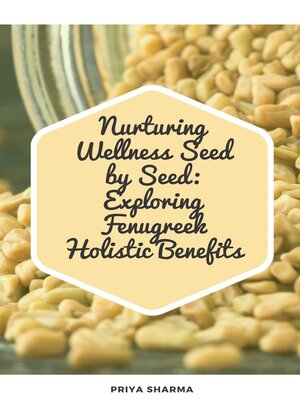
Sign up to save your library
With an OverDrive account, you can save your favorite libraries for at-a-glance information about availability. Find out more about OverDrive accounts.
Find this title in Libby, the library reading app by OverDrive.



Search for a digital library with this title
Title found at these libraries:
| Library Name | Distance |
|---|---|
| Loading... |
Brief history and origins of fenugreek
A herbaceous plant with a long and storied history and many practical uses, fenugreek has played an essential role in human culture for eons. Trigonella foenum-graecum, more often known as fenugreek, is an important part of the culinary, medicinal, and cultural traditions of many different countries. From its humble beginnings in antiquity to its ubiquitous use in modern times, this article seeks to uncover the enthralling narrative of fenugreek.
An Introduction to Botany
An understanding of the botanical features of fenugreek is necessary before exploring its historical tapestry. The Fabaceae family, which includes fenugreek, is often called the bean, pea, or legume family. Its native region is the Mediterranean. This plant is known for its trifoliate leaves, white blossoms, and unique seeds, which can be utilized in many ways: whole, crushed, or even as fenugreek leaves.
Long History: Egypt and Mesopotamia
Fenugreek has been around for a long time, and it was always an important part of cooking and medicine for ancient cultures. Fenugreek was first mentioned in ancient Mesopotamian writings, when it was mentioned both as a spice and a medicinal herb. Fenugreek was highly esteemed by the Sumerians and Babylonians for its fragrant and medicinal qualities.
As we head east, we find that ancient Egyptians valued fenugreek for its medical properties as well. The discovery of fenugreek seeds in Tutankhamun's tomb emphasizes the plant's importance in ancient Egyptian rites and daily life. The inclusion of fenugreek seeds in the embalming process highlights their perceived significance and value.







